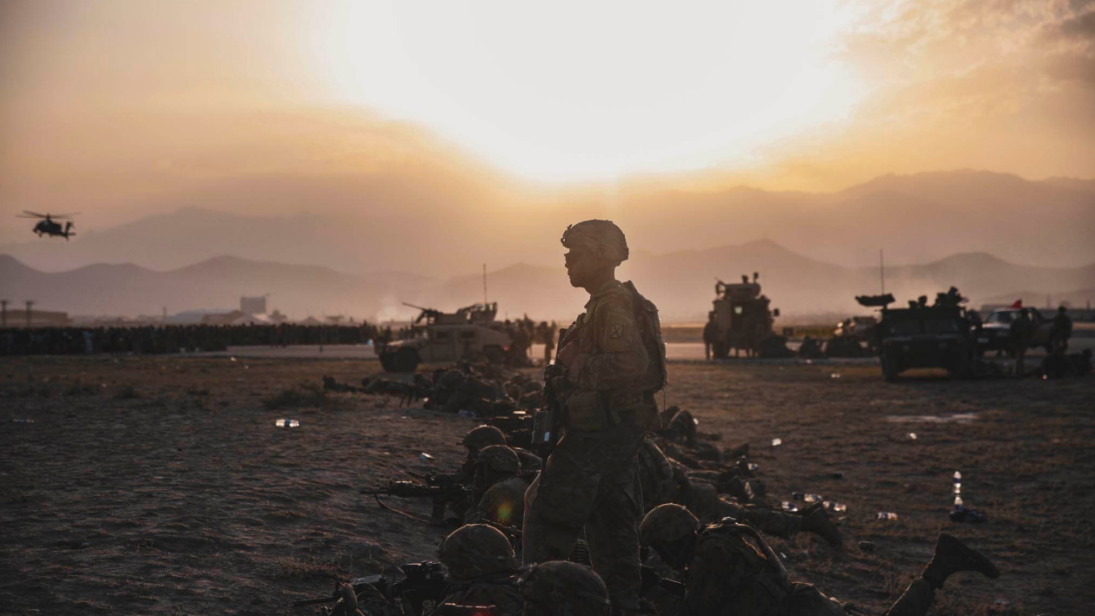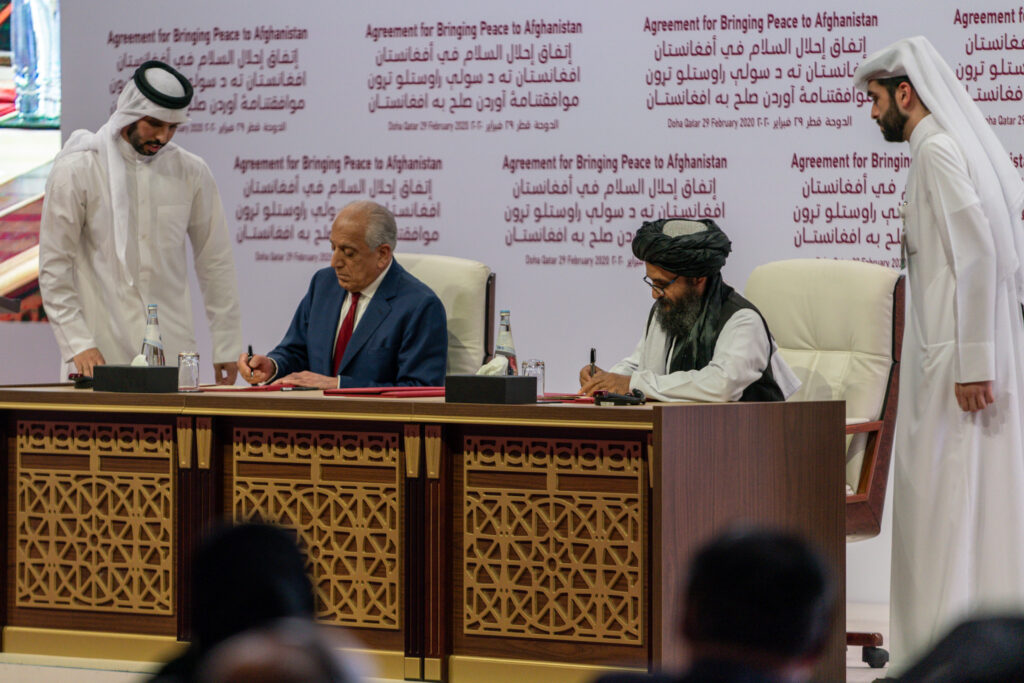
by Mustafa Muneer
Washington’s relationship with Afghanistan was once a central talking point in U.S. foreign policy, but in the wake of the U.S. withdrawal from Afghanistan, the country receives far less attention in policy debates. As the United States heads to the polls tomorrow, it is clear that the next occupant of the White House will determine whether Afghanistan remains a key recipient of U.S. humanitarian assistance or becomes in afterthought of U.S. engagement with South Asia.
Donald Trump and Kamala Harris present contrasting views on America’s engagement strategies in the region. Although Harris has not specifically discussed Afghanistan in her campaign, her administration will likely uphold President Joe Biden’s stance on aid. Trump’s transactional approach, meanwhile, suggests a retreat from humanitarian involvement. As many countries turn inward to focus on domestic issues, Afghanistan’s survival may depend on how deeply it remains intertwined in U.S. foreign policy.
The “who bungled up Afghanistan” narrative has become a focal point in recent political debates during the presidential campaign. Republican-led inquiries, particularly prominent during the recent election cycle, have placed the blame squarely on the Biden administration, specifically citing the actions of Biden and Harris. Conversely, a group of ten former top U.S. military commanders have publicly defended the Vice President’s foreign policy decisions. These officials contend that the former Trump administration’s approach to the situation in Afghanistan, particularly the withdrawal agreement with the Taliban, created significant obstacles that hampered the Biden administration’s ability to execute a stable withdrawal.
Afghanistan in a Harris Administration: Continuation of Biden’s Policy?
Democrats claim that the Trump administration’s weak negotiations to conclude the Doha Agreement set the stage for the disastrous withdrawal, even though Biden broadly supported the decision to conclude a “forever war.” Since the 2021 U.S. withdrawal, the Biden administration’s Afghanistan policy delivers humanitarian aid through NGOs and international organizations to bypass the Taliban. It focuses on food security, healthcare, and women’s rights while avoiding direct political or military engagement with the ruling regime. However, transparency and effectiveness remain challenging amid Taliban restrictions. Harris is likely to uphold the Biden administration’s stance on Afghanistan, isolating the Taliban politically while continuing an emphasis on humanitarian assistance. Since the U.S. pulled out troops in 2021, more than $2 billion in aid has been allocated to Afghanistan. However, questions regarding the transparency of this aid persist. Reports suggest that some funds—estimated at around USD $293 million—may have indirectly benefited the Taliban through their manipulation of aid distribution.
Harris has not made Afghanistan a priority in her campaign. Her policy section, highlighted ahead of the debates, focused on Russia, Ukraine, the Indo-Pacific, Israel, Gaza, and NATO. Notably missing from the list was any mention of Afghanistan. Harris’ approach to Afghanistan has mirrored Biden’s so far . However, recent reports suggest a subtle shift in the Biden administration’s stance, with discussions about limited cooperation with the Taliban on security matters, such as countering IS-K. If regional threats from IS-K worse, it is likely that Harris’s administration would maintain or even expand this pragmatic engagement, in order to safeguard American interests.
Trump’s Approach to Afghanistan and Global Politics
Among the Trump administration’s most significant legacies is the 2020 Doha Agreement with the Taliban, which paved the way for the U.S. withdrawal and showcased his preference for strategic retrenchment over nation-building. Many Republicans initially touted these negotiations as a foreign policy victory, but nevertheless made political hay of Biden’s 2021 withdrawal. Trump’s team branded the withdrawal as “one of the most embarrassing moments in American history.” The House Foreign Affairs Committee’s Republican majority, popularly dubbed the “McCaul report” for its chair Texas Republican Michael McCaul, criticized the Biden administration for prioritizing optics over security, claiming this led to the chaotic evacuation and significant loss of life, including the Abbey Gate attack. It highlights how Biden’s strategy and reliance on contractors accelerated Kabul’s fall and left Americans and Afghan allies stranded. However, the report does acknowledge that the withdrawal conditions were shaped by the 2020 Doha Agreement under Trump, committing the United States to a full exit without solid guarantees from the Taliban. Should Trump win another term, his focus would likely lean toward safeguarding U.S. security priorities by reducing involvement in alliance structures and foreign aid initiatives.

In the last presidential debate, Trump expressed his disapproval of the U.S. withdrawal from Bagram Air Base, viewing it not just as a setback for Afghanistan but also as a strategic loss in balancing against Beijing’s growing influence in the region. Trump’s claim that Bagram Airbase should have been used to counter China, though unsubstantiated by any direct Chinese control of the base, reinforces his broader narrative of U.S. geopolitical decline contrasted with an increasingly powerful China.
Under a Trump presidency, Afghanistan will experience a decrease in aid due to his emphasis on cutting down international spending. This could lead to a potential exclusion of Afghanistan from future U.S. aid plans as the focus shifts toward an “America First” approach to economic and security concerns. Trump’s isolationism, coupled with the desire to end foreign engagements like the war in Ukraine, raises concerns about Afghanistan’s humanitarian crisis under his presidency. However, Trump’s interest in negotiating agreements with the Taliban—such as his remarks about a trade deal and regaining control of Bagram Airfield—could hint at a pathway to normalized relations. Officially recognizing the Taliban is extremely controversial due to the regime’s repeated violations of human rights, but some analysts argue normalization would reduce sanctions-related obstacles, allowing for a smoother flow of humanitarian aid into Afghanistan. In contrast, the Harris-led approach would likely continue the current strategy of channeling aid through NGOs, without formal recognition of the Taliban.
A Choice with Global Repercussions
Afghanistan’s future is not only shaped by its internal challenges but also by the geopolitical choices of the United States. Any U.S. administration’s approach toward Afghanistan will influence the Taliban’s dynamics with key regional actors like Pakistan, China, Russia, and the Central Asian states. Under Trump, a potential focus on reducing aid while exploring transactional relations with the Taliban may signal reduced U.S. involvement and could lead to a severe acceleration of food security and economic crises in the country, impacting the daily lives of the Afghan people. This may encourage Pakistan and China to expand their influence in the country. Pakistan, which already has complex ties with the Taliban, may see this as an opportunity to secure its western flank, though it faces ongoing friction with Kabul over cross-border terrorism and the Taliban’s growing independence from Islamabad’s influence.
Meanwhile, China and Russia would likely substantially increase their involvement in Afghan affairs to secure their respective regional interests. China’s motivations in Afghanistan revolve around securing economic stability and preventing extremism from spilling into its borders. A shift in U.S. policy could leave China to pursue further economic engagement and strategic influence, including infrastructure projects linked to the Belt and Road Initiative. Russia, similarly, would likely seize the opportunity to build influence, seeking to prevent the spread of extremism while balancing against U.S. and NATO activity in the region.
A Harris administration, conversely, would probably maintain humanitarian aid without fully normalizing relations with the Taliban. This limited engagement may lead regional powers to hedge their strategies, with Pakistan and China deepening cooperation with the Taliban to fill whatever perceived vacuum has been left by Washington. The Central Asian states, particularly Tajikistan and Uzbekistan, would continue to adjust their security strategies, balancing between accommodating the Taliban and securing their borders to prevent extremist movements from internal destabilization.
The 2024 U.S. presidential election is a pivotal moment for Afghanistan. Trump and Harris offer different paths but both suggest a fading of Afghanistan from U.S. priorities. As with decades before when the United States abandoned Afghanistan in the wake of Soviet withdrawal, Washington may once again leave the current vacuum to be filled by regional powers.
source : southasianvoices
